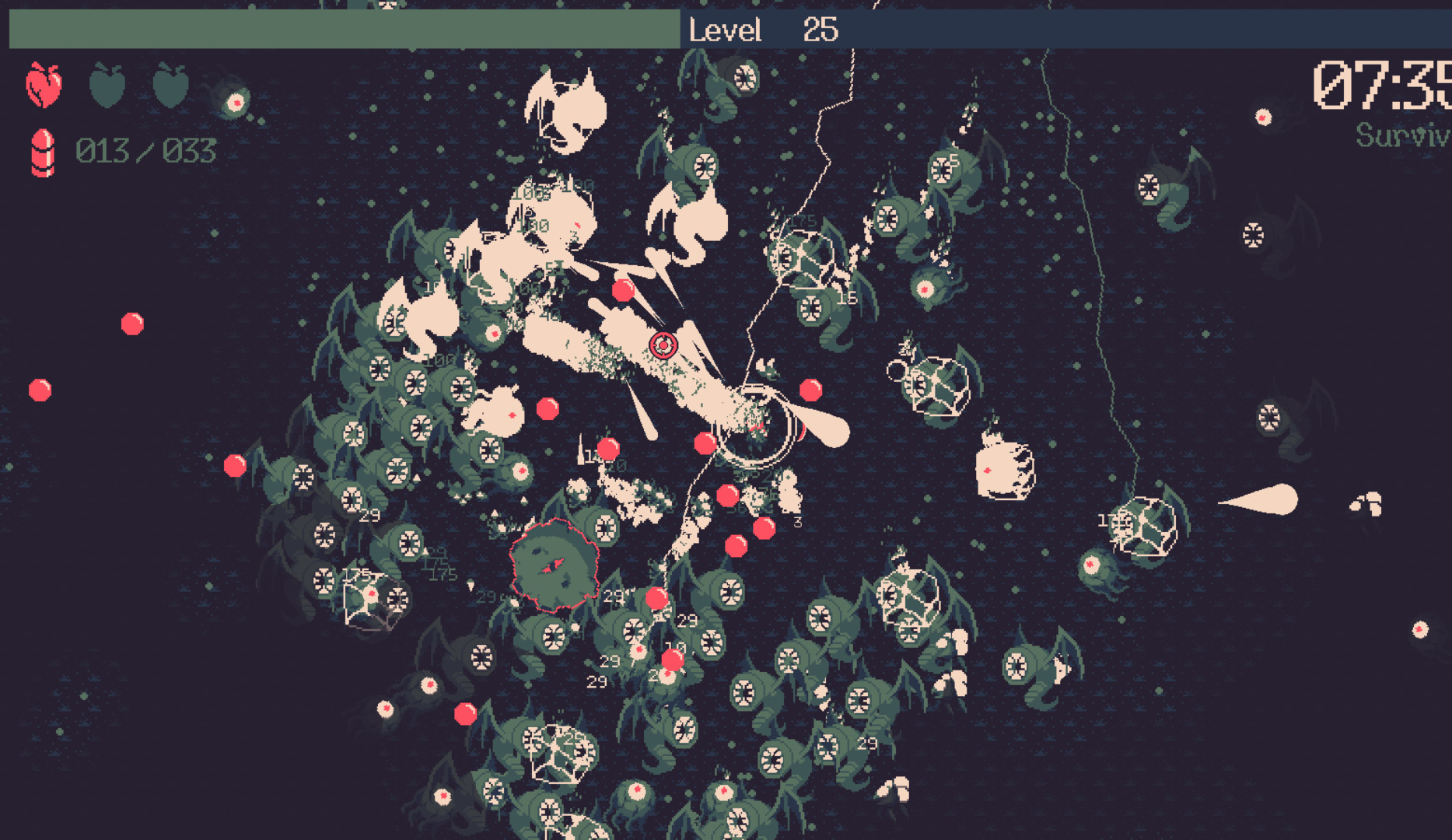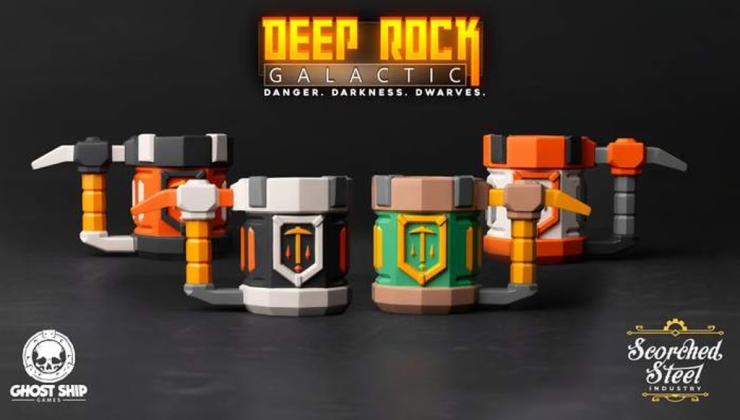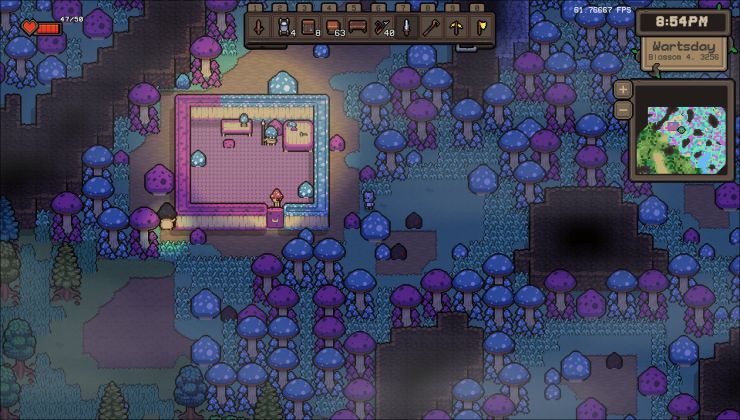Vampire Survivors entered Steam Early Access in December 2021, and was described by the developer as "a gothic horror casual game with rogue-lite elements." The game skyrocketed to success almost immediately, and at time of writing has over 100,000 Steam reviews and an Overwhelmingly Positive rating.
The game sees you fighting off massive waves of enemies with increasingly powerful abilities. The mix of arcadey action, roguelike randomization, run-based gameplay, and a low price point was a massive success, and, predictably, Vampire Survivors inspired a whole industry of similar titles. Thus we are left with the question: what are the key elements of the genre that exploded into existence with the success of Vampire Survivors?
While many elements were present in earlier games, like Crimsonland in particular, Vampire Survivors was actually inspired by a mobile game named Magic Survival. Whether by refinement of its predecessors' formulae or blind luck, Vampire Survivors has brought these elements to the masses.
Let's call games in this genre horde games. It's not a bad name; you do indeed fight a horde, and it evokes the "survival horde modes" from older shooters; typically an ancillary game mode where players fight to survive as long as possible against impossible odds. How do we define a horde game? Allow me to suggest the following criteria:
- Run-based gameplay where you survive as a single character against hordes of enemies
- Create a build during your run by choosing from randomized abilities and powerups
- A dramatic increase in player power and enemy numbers/difficulty during the run
The primary objective of each run is to survive rather than progress in the traditional sense. There are no checkpoints or levels, but rather different maps to play your run on. There are notable horde games where your run progress through stages, but the stages are weakly differentiated - not comparable to, say, moving to a new stage in Dead Cells. These games also typically have strong meta-progression elements through unlockable characters, stages, and powerups. I am loathe, however, to include meta-progression as a fundamental property of the genre, as one could remove meta-progression from all of these titles and be left with essentially the same game (and besides, what run-based game doesn't have meta-progression these days?).
A crucial element of the horde game is the randomization of power-ups. The classic setup sees you given three or four choices each level-up, with the possibility of re-rolling your choices at some cost. This is the primary roguelike influence, as the random variation forces players to adapt to each run and build a strategy around the random power-ups they have access to. This makes each run feel unique, adding a massive amount of replayability.
Finally, although a little less tangible than the other two criteria, is the idea of rapid growth in player power and enemy difficulty. Indeed, in the description of Vampire Survivors the dev states that the power-ups are there to "rapidly snowball" the player against the enemy hordes. In this way each run feels like a distillation of the power creep of a traditional RPG; you start the run extraordinarily weak, struggling to overcome groups of rats, bats, and slimes, and end the run as a demigod, vanquishing masses of enemies immediately as they appear.
Of course, there are other attributes of horde games. Aesthetically, they are generally top-down, two-dimensional, and somewhat visually simple to keep things manageable when the horde really ramps up. Horde games are also (no doubt thanks to VS) priced extraordinarily affordably: typically 2-3$ USD. Indeed it's possible that, thanks to their high replayability, the Horde game genre offers some the highest average playtime-per-dollar in any genre.
Let's take a brief look at a few of the better genre offerings not called Vampire Survivors.
Nomad Survival

Nomad Survival sticks close to the horde game formula. It plays very similarly to Vampire Survivors, but feels more complex and nuanced. You can learn more active and passive skills and figuring out a good build is crucial to making it past the ten-minute mark. There are some excellent additions to the genre that Nomad Survival brings, including mouse control of your character, fine-tuning of run difficulty, pets, and "heritages" - powerful run modifiers that affect how you play. Find it on Steam.
20 Minutes to Dawn

Perhaps the most popular successor to Vampire Survivors is 20 Minutes to Dawn, which we have covered. The primary innovation here is to trade out the typically passive abilities (in the sense that they don't require targeting) with a twin-stick shooter style of gameplay. Upgrades improve the properties of your gun, turning your pea-shooter into a weapon of mass destruction. The dark, high contrast colour palette is nearly monochrome, and an appropriately foreboding synth soundtrack accompanies each run. Find it on Steam.
Boneraiser Minions

A particular favourite of GamingOnLinux, Boneraiser Minions swaps out the character's direct-damage abilities with the ability to raise a host of undead minions that defend your character. The visual aesthetic and audio are excellent, and the minions mechanic notably changes the gameplay to make for a more evasive protagonist than other horde titles. Find it on Steam.
Soulstone Survivors

Soulstone Survivors is a 3d entry into the genre, and a ton of fun. Rather than damage-on-touch, the game telegraphs enemy attacks with danger zones, which I found makes for more forgiving and enjoyable gameplay. There's a ton of status effects you can apply to enemies, and thanks to a great set of 3D animations the combat feels especially satisfying. Try the prelude free on Steam.
In addition to the games mentioned here, we can include Halftime Heroes, Grim Horde, Void Scrappers, Spellbook Demonslayers, and Neophyte as worthy genre entries. There are plenty of games that may not be horde games proper, but feature similar enough gameplay to warrant a mention. Just King and Gunlocked are two excellent games with horde-like gameplay, but stray from the formula in interesting ways.
So what do you think? Have a game to include or criteria to change in our noble pursuit of defining gaming's newest genre?
Reminds me a bit of Ubermosh too :)
Sounds good, up until now I called them Vampslikehah nice, a lot easier than Vampire Survivors-like.
Well, then would Risk of Rain (and the second) qualify?A fellow Ubermosh enjoyer! Great game.
Reminds me a bit of Ubermosh too :)
RoR is an interesting case, it hadn't actually occurred to me. It does more or less fit the criteria, although I think there's less choice and more luck in making your build. Runs also play out across several maps and it's a sidescroller; I'm tempted lump it in with Gunlocked as a liminal case?
Crimsonland is a great game, only horde game I've ever played actually. Sucks that they didn't get the credit for inventing the genre
Was thinking the same thing. One of the best co-op experience also for me.
What specifically separates Horde Games from the more traditional Twin Stick Shooter?
It depends how strictly you define the genre. Vampire Survivors, specifically, is very different. It's not a twin stick shooter in any sense - weapons fire automatically and aren't aimable; whether you hit depends on placing your character in the correct place at the correct time. Also, as mentioned in the article, there are no distinct levels, but just a horde of enemies that get progressively bigger, more numerous, and more powerful.
Just one more thing - while I love Nomad Survival and agree it's one of the best, I actually think Spellbook Demonslayers will be the better game! I'm just gutted that we have to wait another month before it releases - but the prologue is free and I've spent quite a few hours with it already.
Liam also covered a rare space-themed Horde game called Gunlocked. I haven't tried it yet, but Space Crusaders was bad enough (despite being native) that it's put me off space-themed games for a while!
What specifically separates Horde Games from the more traditional Twin Stick Shooter?For one thing, most of 'em don't feature much shooting. You move your character around trying to avoid the enemies homing in on you, while your attack abilities fire off by themselves.
I was surprised, because what's described sounds like it might well appeal to a Bomberman fan like myself - a top-down view, an inverse difficulty-curve, and strategising to make the best of the power-ups that you find have always been part of the core experience of that series and games like it. I also enjoy the twin-stick shooter Blazing Beaks, which has some of these elements in its gameplay-loop, too.
To keep things simple, would I be best off just checking out Vampire Survivors first (as opposed to other titles that take the idea in different directions) to see if it does indeed overlap with my tastes as it sounds like it might?
Questions aside, veteran Japanese developer Sunsoft is currently staging a comeback, and one of their new offerings will be [Ikki Unite](https://store.steampowered.com/app/2061150/Ikki_Unite/), a up-to-16-player title which they've apparently said is somewhat Vampire Survivors-inspired.
Last edited by Pengling on 3 Sep 2022 at 6:17 pm UTC
hings simple, would I be best off just checking out Vampire Survivors first (as opposed to other titles that take the idea in different directions) to see if it does indeed overlap with my tastes as it sounds like it might?
Questions aside, veteran Japanese developer Sunsoft is currently staging a comeback, and one of their new offerings will be [Ikki Unite](https://store.steampowered.com/app/2061150/Ikki_Unite/), a up-to-16-player title which they've apparently said is somewhat Vampire Survivors-inspired.
yeah, probably check out VS first - you can also try the free prologues for Soulstone Survivors or, as scaine mentioned, Spellbook Demonslayers (which I haven't tried yet). I hadn't heard about Ikki Unite, from the trailer it definitely looks like it belongs in the genre
hings simple, would I be best off just checking out Vampire Survivors first (as opposed to other titles that take the idea in different directions) to see if it does indeed overlap with my tastes as it sounds like it might?
Questions aside, veteran Japanese developer Sunsoft is currently staging a comeback, and one of their new offerings will be [Ikki Unite](https://store.steampowered.com/app/2061150/Ikki_Unite/), a up-to-16-player title which they've apparently said is somewhat Vampire Survivors-inspired.
yeah, probably check out VS first - you can also try the free prologues for Soulstone Survivors or, as scaine mentioned, Spellbook Demonslayers (which I haven't tried yet). I hadn't heard about Ikki Unite, from the trailer it definitely looks like it belongs in the genre
You also don't really have much to lose by trying VS - it's dirt cheap.
Last edited by cookiEoverdose on 3 Sep 2022 at 7:39 pm UTC
Honestly the whole talk about horde games has me installing Ut2k4 again for some invasion, lol, I used to be able to play that for HOURS every night online.
That is my favorite mode to play and I wish more games did this outside of Killer Floor.
https://www.youtube.com/watch?v=MrquNESyQHY
As for whether I feel like this would qualify as an all new genre? Lemme think about it some more and get back to you. I mean, if fusing Metroid and Castlevania gave us the veritably bustling "Metroidvania" genre, which we all recognize as a proper genre, then I suppose mixing rogue-lite elements of, say, Enter the Gungeon or Rogue Legacy with the onslaught swarms of way classics like Robotron 2084 could maybe be a new genre as well, with "horde" being a decent term for it.
I suppose if the existence of "Metroidvania" is "the argument in favor of new genre", then I don't really have a good counter-argument against it. But for now, for reasons I really can't quite explain with any real value, this feels less to me like a new genre, and more like a spate of clever mashups. :-)
I'll need to marinate on this question a little more, methinks.....and most importantly, I suspect: get a little actual hands-on with the games themselves, and not just go by still images and text descriptions. ;-)
I know Vampire Survivors is supposed to have a native Linux version "some day", I will be waiting then














 How to set, change and reset your SteamOS / Steam Deck desktop sudo password
How to set, change and reset your SteamOS / Steam Deck desktop sudo password How to set up Decky Loader on Steam Deck / SteamOS for easy plugins
How to set up Decky Loader on Steam Deck / SteamOS for easy plugins
See more from me